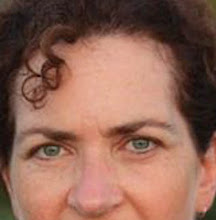Any opportunity to see something new excites me.
Glimpses into the natural world present themselves unexpectedly—unexplored treasures land almost upon my doorstep.
At times, I find myself caught between giddy exploration and more thoughtful restraint.
With a camera in hand, so much more can be seen.
Yet, how close is too close?
And when does my desire to discover interfere with what I want so badly to see?
I struggle to do what is best for both.
And lacking the experience with nesting birds and close contact with fledging hummingbirds, thought I might have the recipe for disaster brewing. Pictures of prematurely fledging babies are not what I’m after. Or abandoned nests, with orphaned young.
Just a clearer picture of what I have never before seen.
Tossed, I wrote to Julie Zickefoose.
Her experience and knowledge are beyond measure.
Her passion, directed as it should be.
Toward all things natural.
Her first question to me, “Are you sure your attention won’t bring predators in with scent?”
Jays, chipmunks and snakes might be alerted to the presence of a nest, if I’m careless in being near. Like the path in the woods that all must walk down, regardless of where it leads, scent is an invitation to explore further.
I must be careful of my presence there.
And not lead others to them.
I snapped just one close-up, waiting until she had left for food, and disappearing before her return.
Two hairy raisins sleeping soundly, already much larger than just days ago!
And a tiny bare wing folded against pink skin.
Then I sat at a distance, hoping to see her feed them before settling in again.
For almost 2 hours I waited, focused on the branch with a longer lens, perfectly still, watching the nest until my legs ached from the stillness.
Through the yard, chatter from another female and 2 males as they darted back and forth to the porch feeder.
And Mama chipping from behind me somewhere, though I dared not take my eyes from her nest.
I left for work without ever seeing her return.
Crossing the sidewalk in the front yard, I found a large black rat snake stretched out in the grass.
Perhaps she saw him there as I waited?
And watched his progress as he hunted.
I relocated him far from the maple tree.
And found Mama back at the nest that evening.
Resting beneath her leafy canopy in the rain.














































%20copy.jpg)



















18 comments:
Wow, great pictures!
I am working on a study of black-chinned hummingbirds, the western cousins of ruby-throateds. If all goes well, the nestlings remain in the nest for three weeks and about 60% of nests survive to fledging in a good year.
We have not yet released data from this project, but some colleagues of mine recently published a paper on a species of hummingbird we studied in Venezuela. I can email you a copy if you'd like.
Good luck with the nestling watching,
Max
Lovely pictures. Amazing how much they have grown.
I think we all have concerns about finding the point when observing becomes interfering. I even have conflicting thoughts about iPods with bird calls when they used to bring birds in sight for our cameras.
How exciting to witness hummingbirds as they mature. Wonderful photo. You have great patience to remain there for such a long time!
Wonderful posts, Nina. I have never commented before - by the time I check your blog you usually have dozens and don't need one more, I'm sure. But I did give you the most beautiful Arte y Pico award (check out my blog entry for Wed. July 9 to see the info you need). Why did I do this for a total stranger? Well, your photos and words have been like meditations for me at times and I've walked along with you on your woodsy paths at times and thoroughly enjoyed it. Love seeing the hummers, too, and to hear your concern about your watching becoming a hazard to them (how many people would think about that?).
This year I put up a nestbox camera to watch my Spotted Flycatchers. They didn't turn up.... I thought it was my fault for interfering. Then suddenly they arrived - a month late all the way from Africa to the UK. Like you I'm watching the development. I wonder whether I'm watching too much, as I'm so worried about them. Today it rained ALL DAY. The ate very little. Tomorrow I will be up early to see if they are still alive. God this Nature stuff is exhausting! Jane
I just love seeing their development. You are doing the right thing by being cautious.
Hairy raisins--I am still chuckling.
Yes, we all must temper our adoration and enthusiasm with care of where we tread. I got too close to a cardinal nest once and had five bursting, half-feathered chicks to deal with.
Hairy raisins....snort!
Remarkable... what sets the scale of this is the lichen.. it looks massive in your great pictures but I know the true size and it soon allows we to wonder at the smallness of this next and the young within.
Congratulations on your new award, so well deserved.
Your obvious concern for the life around you is what sets you apart. And, of course, your talent as both writer and photographer.
Thank you, Nina.
It's good to hear others' frustrations and concerns with nest-watching. And, yes--isn't it exhausting to TRY to keep up with all the activity that will be missed if we turn away for even a day!
I'll watch carefully--and Julie has shared a wealth of info including a timetable she feels is safe for preventing premature launches.
Rhonda--thank you so much for the award.
Nothing means more than the recognition of fellow bloggers. We all know how hard it can be to post work we're proud of--I'm glad you enjoy visiting here.
I'm a horrible recipient, though, as Bobbie (and others) can atest to. I've been negligent of my responsibilities in passing them on. NOT because I don't find other bloggers worthy--but because I'm a procrastinator.
You should see my closets!
I really, really intend to post and pass the awards from Zhakee, Kathiesbirds, Bobbie and you!
You've perfectly captured the combination of burning curiosity and angst that a tuned-in nature watcher experiences. I think that the more you watch, the more you realize that the watcher almost never goes unnoticed, and almost always affects the behavior of the subject. Which is why many of my best observations are made inside my big, comfortable blind--my studio. I can't imagine a more sensitive and careful observer than you, and I'm holding my breath that this nest and these little raisins make it to maturity--for their sake and yours.
A link that will be interesting to many:
http://hummingbirdworld.com/h/nest.htm
It's a lovely video of still photos and live action of a hummingbird nest. You've got to subtract 16 from their "Day 34, Day 42" captions, because unfortunately their caption clock starts with the laying of the first egg, instead of the hatching of the birds. These are Anna's hummingbirds, but their development is very similar to that of RTHU, and they left the nest at Day 34. Can't think of another small bird that stays in the nest for 34 days! Field sparrows boot at Day 7, for instance... It's part of what makes hummingbirds so fascinating.
Best of luck to you with this matchless opportunity. It's going to be fun and nerve-wracking and scary, and I hope it works out.
An absolutely beautiful posting. Thank you.
Not quite the flitting, flying birds they are to be, but still they are so much closer than before. What great shots.
This is so exciting! I can't wait to see them as they get bigger!
They are so cute! How awesome that you have this chance to see them like this. Wow!
What a wonderful blog you have!
Honing your skills of patience and the fine art of resisting temptation is good -- as well as frustrating.
I understand the frustration of wanting to see without disturbing. I feel my cavity-nesters are a little safer, because the boxes are close to the house and baffled, but I got too careless with a Red-winged Blackbird nest once. I was visiting it nearly every day when the eggs disappeared. I looked at the trail of crushed vegetation I had left behind and realized I probably led a predator right to them. Now, I am more careful with "wild" nests.
Nice photos of the "hairy raisins." (smiling at the imagery)
Keep on watching (safely) and sharing when you can.
~Kathi
Post a Comment